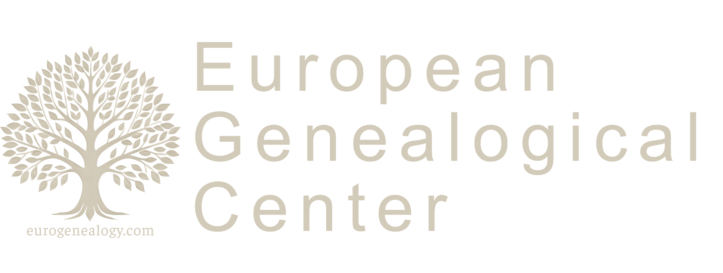Tracing Belgian ancestors: genealogical research & family tree reconstruction
Discover your ancestry dating back to the 16th century
Archival search and family history research in Belgium
Genealogical research in Belgium presents a unique opportunity to explore personal ancestry within one of Europe’s most historically complex and culturally rich countries. Nestled at the intersection of Latin and Germanic worlds, Belgium’s territory has been shaped by centuries of political transitions — from the Burgundian Netherlands and Spanish Habsburg rule to Austrian control and the Napoleonic civil reforms. These layered influences have left behind a multilingual and regionally diverse documentary legacy, with records preserved in French, Dutch, Latin, and German, depending on time and place. From Wallonia and Flanders to Brussels and the German-speaking East Cantons, each region reflects its own heritage in how people lived, worshipped, and recorded family events. At the European Genealogical Center, we guide our clients through these intricacies, reconstructing family lines, uncovering forgotten ancestors, and placing personal histories in a meaningful historical framework.
A foundational element of genealogical research in Belgium consists of parish registers and civil registration documents, which jointly provide vital data on baptisms, marriages, and deaths. Catholic parishes began keeping records as early as the 16th century, often in Latin, while Protestant registers appeared later in regions with Reformed communities. In 1795, during French occupation, civil registration became mandatory, introducing uniform birth, marriage, and death records kept by municipal authorities. These records—known for their thoroughness—usually contain not just basic facts but also parents' names, professions, and residences, offering invaluable detail for lineage tracing. As borders changed and languages shifted, the format and content of these documents evolved, requiring both archival experience and linguistic skill. Our team navigates this complexity to locate and interpret materials accurately, whether for deep genealogical reconstructions or for tracing a single family line.
Sources of genealogical research in Belgium
To supplement the vital records, we examine a broad spectrum of supporting archival sources that bring historical depth, personal context, and social nuance to each family’s story. These include population censuses, tax lists, cadastral surveys, property transfers, and inheritance inventories, which provide insight into social status, material conditions, and household composition. Notarial records are particularly valuable in Belgium and include wills, dowries, loan contracts, business transactions, and real estate deeds—revealing the economic, legal, and social landscape in which ancestors lived. In regions with high emigration, such as parts of Wallonia, we also investigate travel, migration, and settlement documents, especially for families who moved to North America, France, or other European countries. Our research adapts to each linguistic, administrative, and historical context, ensuring that no relevant source is overlooked. From Flemish-speaking villages to urban Francophone centers, we follow each ancestral line with precision, cultural understanding, and historical awareness, reconstructing comprehensive genealogical profiles across generations.


Beyond official documentation, our genealogical investigations delve deeply into the everyday lives, social interactions, and cultural environments of ancestors across multiple generations. We explore school records, occupational files, guild memberships, conscription rolls, and sometimes even personal correspondence, community petitions, or municipal records—when available. These materials offer unique glimpses into the rhythms of work, education, faith, migration, and leisure activities across generations, highlighting social networks, family relationships, and local traditions, customs, community events, and celebrations. Belgian archives, rich in bureaucratic detail due to early modern and 19th-century reforms, allow us to reconstruct not only genealogical timelines but also the lived experiences, social networks, and local community dynamics behind them. Each project is handled with historical care, linguistic precision, and cultural sensitivity, with results compiled in custom-designed family history books, including genealogical charts, detailed narratives, source references, illustrative maps, and relevant contextual notes.
Neighboring countries where we conduct research
Examples of our research
Below you can review examples of research reports received by our customers:
Prices for genealogical services in Belgium
You can find a detailed price list and description of all services of European Genealogical Center here
Prices for genealogical services in Belgium
Genealogical research
From €1500
Tracing family history back to the 17th century
Biographical search
From €800 to €2000
Establishing the life story of an individual and their close relatives
Nationality confirmation
From €500 to €1500
Identifying details about a person’s ethnic origin
Document search
From €200 to €1200
Obtaining certificates, parish registers, and civil registry records
Family history book
From €2500
Creating a unique publication describing the genus history
Family history website
From €2000
Development of a personal website dedicated to your family’s history
Submit a request, and we will contact you shortly
You can also reach us directly by sending an email to: european.genealogical.center@gmail.com or writing to us in Telegram

european.genealogical.center@gmail.com
© 2026
All rights reserved
All rights reserved
Contact us:

